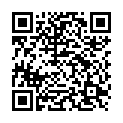|
|
|
| Module code: WIBASc255 |
|
|
2V+2U (4 hours per week) |
|
5 |
| Semester: 2 |
| Mandatory course: yes |
Language of instruction:
German |
Assessment:
Written or oral examination. The type of examination will be announced on the notice board at the beginning of the course.
[updated 02.07.2019]
|
WIBASc255 (P450-0088) Industrial Engineering, Bachelor, ASPO 01.10.2013
, semester 2, mandatory course
|
60 class hours (= 45 clock hours) over a 15-week period.
The total student study time is 150 hours (equivalent to 5 ECTS credits).
There are therefore 105 hours available for class preparation and follow-up work and exam preparation.
|
Recommended prerequisites (modules):
WIBASc165 Mathematics I
[updated 10.02.2020]
|
Recommended as prerequisite for:
WIBASc-515 Automation Engineering
WIBASc-525-625-FÜ12 Using Mathematical Software
WIBASc-525-625-FÜ15 Market Research
WIBASc-525-625-FÜ19 Simulation II
WIBASc-525-625-FÜ22 Decision theory
WIBASc-525-625-FÜ23 Simulation
WIBASc-525-625-FÜ29 Introduction to Six Sigma
[updated 11.02.2020]
|
Module coordinator:
Prof. Dr. Susan Pulham |
Lecturer:
Prof. Dr. Susan Pulham
[updated 10.02.2020]
|
Learning outcomes:
After successfully completing this module students will:
_ be able to process mass data with methods of descriptive statistics
_ know how to interpret the results of the above
_ be able to recognize stochastic situations as such and can model them by stochastic means
_ have acquired the ability to calculate probabilities, determine suitable distribution forms and calculate distribution parameters
_ have a basic understanding of inductive statistics, especially methods of estimating parameters and testing hypotheses
[updated 02.07.2019]
|
Module content:
1. Descriptive statistics:
_ Basic terms
_ One- and two-dimensional frequency distributions
_ Measures of location and measures of spread/dispersion
_ Calculating correlation and regression
2. Probability calculus
_ Basic terms: random experiment, events, probability
_ Modeling
_ Multi-stage random experiments
_ Conditional probability and independence
_ Random variables, expected value, variance, normal distribution and limit theorems
3. Basic elements of the inferential statistics
_ Problems of inferential statistics
_ Point and interval estimates
_ Hypothesis tests
[updated 02.07.2019]
|
Teaching methods/Media:
Excel files with sample material, press reports and statistical studies will be used. Regularly revised lecture notes will be available for this course.
[updated 02.07.2019]
|
Recommended or required reading:
_ Dietmaier, C.: Mathematik für Wirtschaftsingenieure, 1. Auflage, Carl Hanser Verlag, 2005
_ Eckstein, Peter: Statistik für Wirtschaftswissenschaftler, 3. Auflage, Gabler, Wiesbaden, 2011
_ Fischer, Gerd: Stochastik einmal anders; 1. Auflage, Vieweg+Teubner Verlag, Wiesbaden, 2005.
_ Henze, Norbert: Stochastik für Einsteiger; 9. Auflage, Vieweg Verlag, Wiesbaden, 2011.
_ Pulham, Susan: Statistik für Nicht-Mathematiker, Gabler, Wiesbaden, 2011
_ Sachs, Michael: Wahrscheinlichkeitsrechnung und Statistik für Ingenieurstudenten an Fachhochschulen; 3. Auflage, Carl Hanser Verlag, 2009
[updated 02.07.2019]
|

